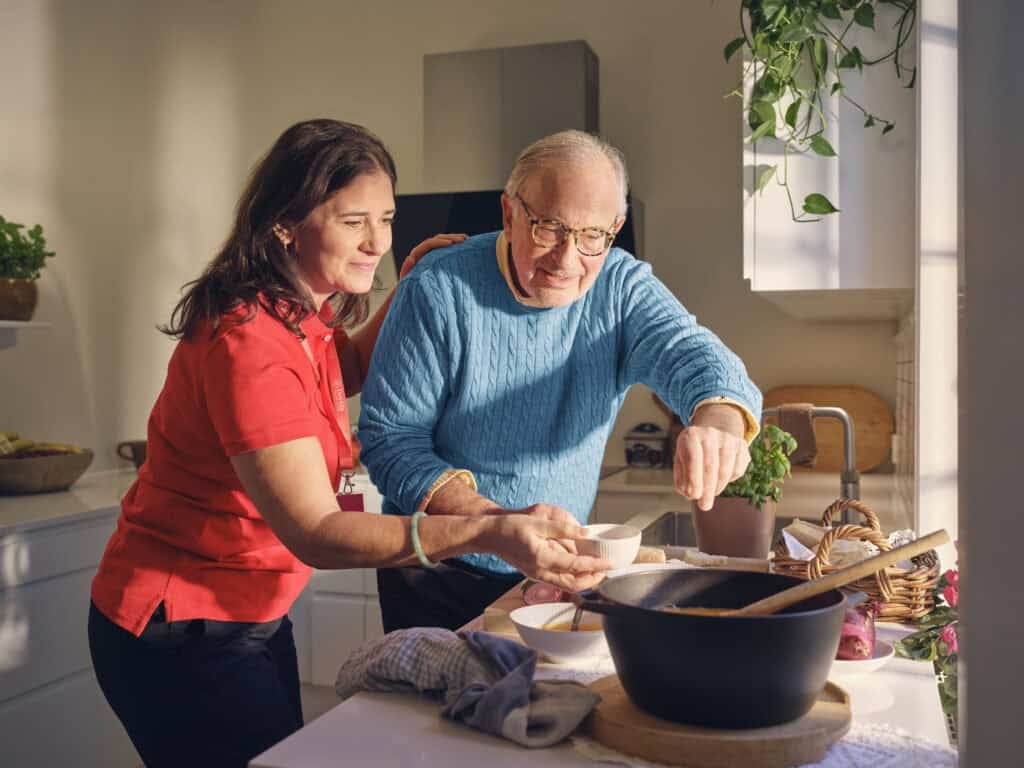Blog
23 October 2025
Support at Home Service Categories Explained
Support at Home organises services into three distinct categories, each serving different aspects of your daily life and wellbeing. Understanding these categories helps you recognise what support is available and how different services work together to help you live independently at home.
Clinical Care: Health and Therapeutic Services
Clinical care encompasses specialised services delivered by qualified or accredited health professionals. These services focus on maintaining or regaining your functional and cognitive capabilities. The clinical care category includes nursing care, allied health services such as physiotherapy and occupational therapy, prescribed nutrition, and restorative care programs.
What makes clinical care distinct is that these services are fully government-funded. You don’t pay contributions for clinical services, recognising that health-related care is essential for your wellbeing. Whether you need regular nursing visits, physiotherapy to improve mobility, or occupational therapy to adapt to changing abilities, these services come without additional cost to you.
Clinical care services can be delivered in various ways, including face-to-face visits in your home, telehealth appointments, or a combination of both. Your Care Manager works with you to arrange these services based on your assessed needs and the recommendations from health professionals.
Independence Supports: Managing Daily Activities
Independence supports help you manage the activities of daily living – the practical tasks that maintain your quality of life and dignity. This category covers assistance with personal care, social support and community engagement, respite services, transport, and access to assistive technology and home modifications.
Personal care might include help with showering, dressing, grooming, or continence care. Social support helps you stay connected to your community through activities, outings, or companionship. Transport services ensure you can attend appointments, go shopping, or participate in social activities. Respite provides relief for family carers, ensuring they can rest and recharge.
Contributions for independence supports range from 5% to 50% depending on your income and assets assessment. This variable contribution structure recognises that these services directly support your independence whilst ensuring affordability based on your means to pay.
Everyday Living Support: Maintaining Your Home
Everyday living support ensures your home remains safe, clean, and liveable, enabling you to live independently at home. This category includes domestic assistance such as cleaning, laundry, and shopping, home maintenance and repairs, meal preparation, and gardening services.
These services address the practical elements of home life that can become challenging as you age. Regular cleaning maintains hygiene and reduces fall risks. Meal preparation ensures you maintain proper nutrition. Home maintenance prevents small issues from becoming safety hazards. Gardening keeps outdoor spaces manageable and enjoyable.
Contributions for everyday living support range from 17.5% to 80% based on your financial assessment. The contribution structure reflects that whilst these services enhance quality of life, they represent more routine household tasks compared to clinical or independence services.
Assessment Determines Your Service Access
It’s important to understand that you’re not automatically eligible for all services within these three categories. Your formal aged care assessment determines which specific services you need, and these are documented in your Notice of Decision and accompanying support plan.
Your approved services reflect your individual circumstances, health conditions, living situation, and personal goals. As your needs change, you can request reassessment to add services or increase your classification level, ensuring your support remains appropriate to your situation.
How Dovida Supports Your Service Choices
As your Support at Home provider, Dovida ensures you’re empowered to choose the mix of services that best suits your needs within your allocated budget. Your Care Manager coordinates the delivery of these services, whether they fall into one category or span all three.
Many people receive services across multiple categories. You might have nursing visits (clinical care), personal care assistance (independence support), and regular cleaning (everyday living support) all working together to support your wellbeing at home.
Understanding these three service categories helps you recognise the breadth of support available through Support at Home and how different types of assistance work together to help you live your life, your way.
